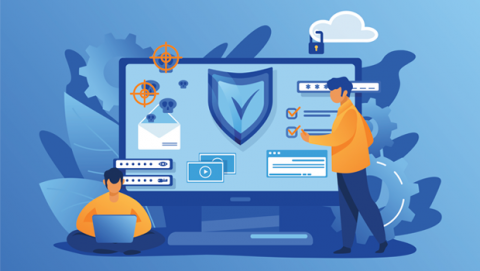In the ever-evolving landscape of information technology, cybersecurity remains a critical priority for organizations seeking to safeguard their digital assets and sensitive data. Acquiring industry-recognized certifications in information security not only validates expertise but also opens doors to diverse career opportunities. Here are five coveted certifications in information security that professionals can pursue in 2023:
- Certified Information Systems Security Professional (CISSP): CISSP is a globally recognized certification offered by (ISC)², designed for experienced security practitioners, managers, and executives. It covers a broad spectrum of security topics, including security and risk management, asset security, security architecture, and more. CISSP certification demonstrates expertise in designing, implementing, and managing a robust cybersecurity program.
- Certified Ethical Hacker (CEH): The CEH certification, provided by the EC-Council, focuses on ethical hacking, penetration testing, and understanding vulnerabilities in systems and networks. It equips professionals with the skills necessary to identify weaknesses in an organization’s security posture, enabling them to proactively defend against cyber threats.
- CompTIA Security+: CompTIA Security+ is an entry-level certification ideal for individuals starting their cybersecurity careers. It covers foundational knowledge in network security, threats, vulnerabilities, cryptography, and risk management. Recognized globally, Security+ certification validates skills required for securing networks and systems.
- Certified Information Security Manager (CISM): Offered by ISACA, the CISM certification is tailored for professionals managing, designing, and assessing an enterprise’s information security program. It focuses on information risk management, governance, incident management, and strategic alignment of security initiatives with business objectives.
- Certified Information Systems Auditor (CISA): CISA, also from ISACA, is suited for individuals involved in auditing, control, and assurance of information systems. It emphasizes auditing, monitoring, control, and assurance of information systems and is highly valued in the fields of IT audit and security.
Choosing the right certification depends on career aspirations, current expertise, and specific job roles within the cybersecurity domain. Each certification caters to different skill sets and levels of experience, offering professionals opportunities to specialize in various facets of information security.
Benefits of Obtaining Information Security Certifications:
- Career Advancement: Information security certifications enhance credibility and demonstrate proficiency, leading to better job prospects and career growth opportunities.
- Skill Validation: Certifications validate expertise in specific domains, providing a standardized measure of knowledge and skill set in cybersecurity.
- Higher Earning Potential: Certified professionals often command higher salaries and increased earning potential compared to non-certified counterparts.
- Stay Updated: Maintaining certifications requires continuous learning and staying updated with evolving threats, technologies, and best practices in cybersecurity.
As the demand for cybersecurity professionals continues to rise, earning certifications in information security remains a strategic investment to validate skills, stand out in a competitive job market, and contribute effectively to securing digital assets in today’s technology-driven world.

